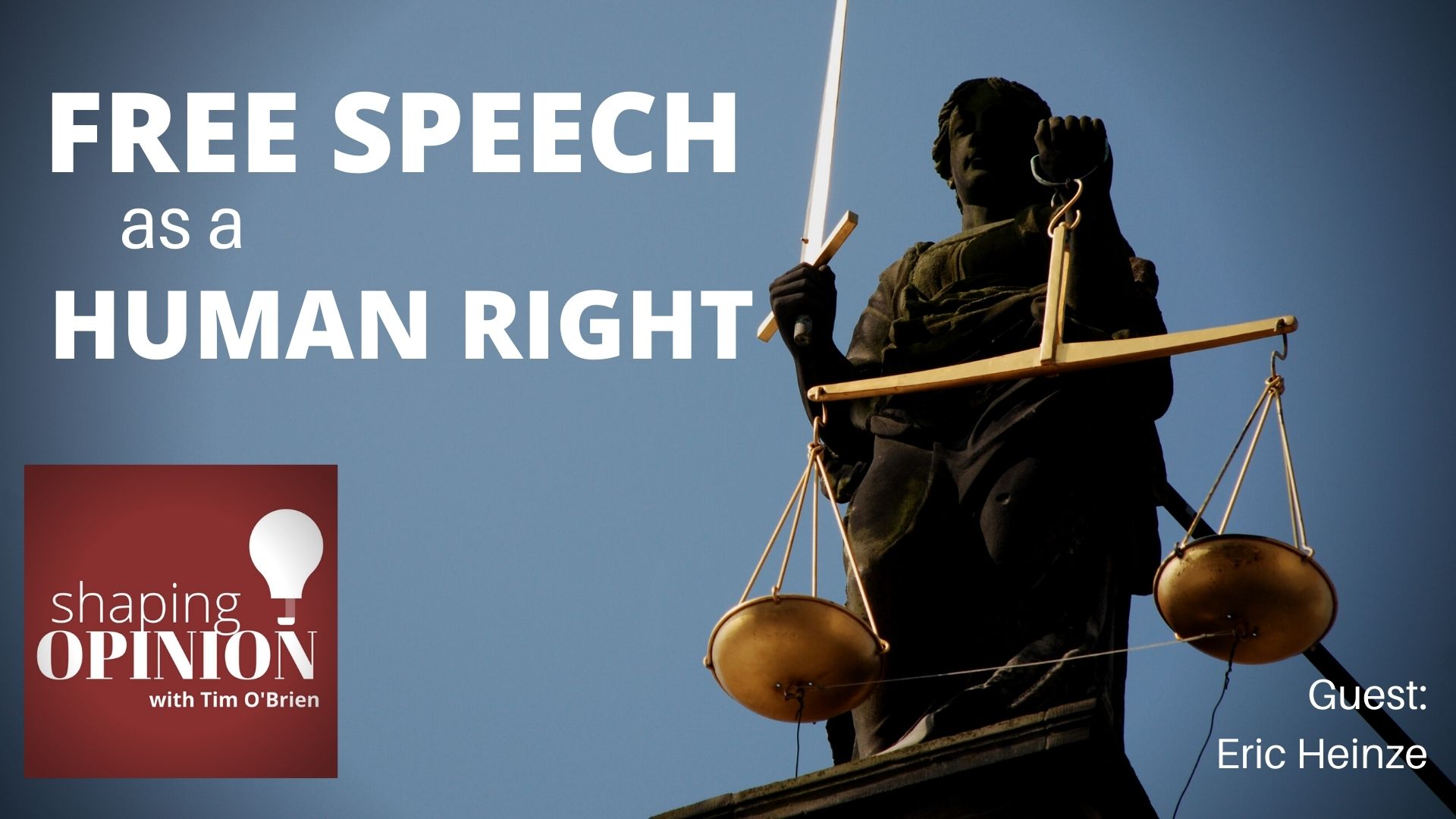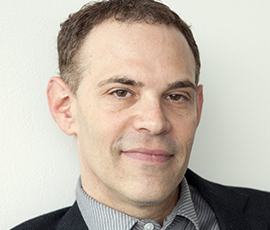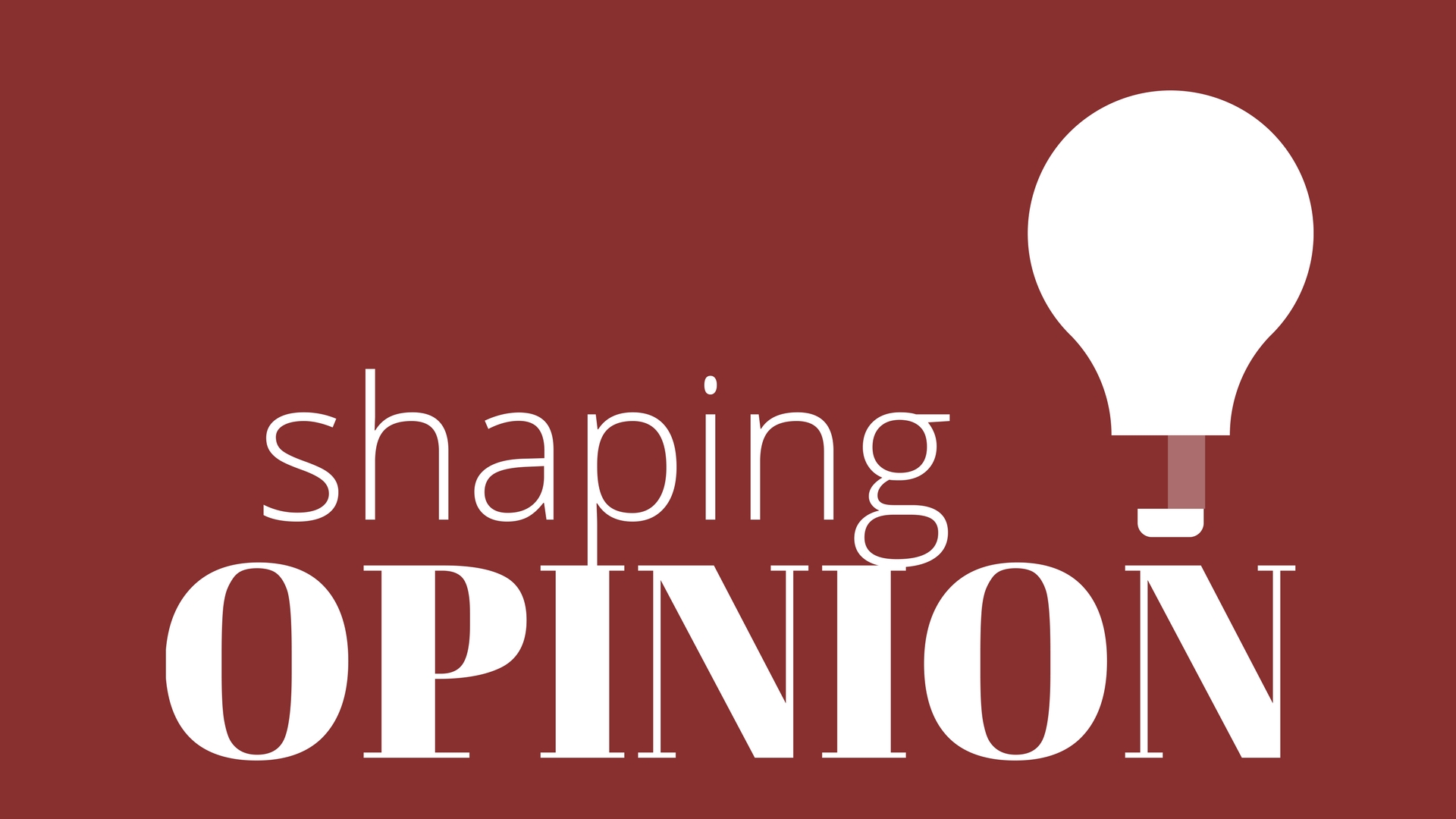Author and professor Eric Heinze joins Tim to talk about freedom of speech and expression at the most fundamental level. He recently wrote a book on free speech, but it’s not exactly what you might expect. He explores free speech in a larger more fundamental context than America’s First Amendment. He talks about it in the context of universal human rights. Eric tells us about the thinking behind his new book called, “The Most Human Right: Why Free Speech is Everything.”

One of the benefits of having a podcast is that you get the chance to talk to a diverse set of really smart and interesting people. Sometimes those people write books, and that’s the case with our guest today.
As mentioned, the book Eric Heinze wrote is about free speech and human rights. Eric is a professor of law and humanities at Queen Mary University of London.
In his book, he asks questions like, “What are human rights?” “Are they laid out definitively in the UN’s Universal Declaration of Human Rights or the U.S. Bill of Rights?” Or, are they just items on a checklist, like a good standard of living, housing, dignity?
That’s how Eric frames his new book. But what caught my attention when reading the book is how deep he really goes on this topic. He doesn’t flinch when he takes the stance that when global human rights programs fail, it is often the result of people being denied one basic human right – freedom of speech.
Links
- Eric Heinze: Queen Mary University of London
- “The Most Human Right: Why Free Speech is Everything,” by Eric Heinze (Amazon)
About this Episode’s Guest Eric Heinze
 After completing studies in Paris, Berlin, Boston, and Leiden, Eric Heinze worked with the International Commission of Jurists and UN Sub-Commission on Human Rights, in Geneva, and on private litigation before the United Nations Administrative Tribunal in New York. He conducts lectures and interviews internationally in English, French, German, and Dutch, and is a member of the Bars of New York and Massachusetts, and has also advised NGOs on human rights, including Liberty, Amnesty International and the Media Diversity Institute. He has recently served as Project Leader for the four nation EU (HERA) consortium Memory Laws in European and Comparative Perspective (MELA). His prior awards and fellowships have included a Fulbright Fellowship, a French Government (Chateaubriand) Fellowship, a Deutscher Akademischer Austauschdienst (DAAD) fellowship, a Nuffield Foundation Grant, an Obermann Fellowship (Center for Advanced Studies, University of Iowa), and several Harvard University Fellowships, including a Sheldon grant, an Andres Public Interest grant, and a C. Clyde Ferguson Human Rights Fellowship.
After completing studies in Paris, Berlin, Boston, and Leiden, Eric Heinze worked with the International Commission of Jurists and UN Sub-Commission on Human Rights, in Geneva, and on private litigation before the United Nations Administrative Tribunal in New York. He conducts lectures and interviews internationally in English, French, German, and Dutch, and is a member of the Bars of New York and Massachusetts, and has also advised NGOs on human rights, including Liberty, Amnesty International and the Media Diversity Institute. He has recently served as Project Leader for the four nation EU (HERA) consortium Memory Laws in European and Comparative Perspective (MELA). His prior awards and fellowships have included a Fulbright Fellowship, a French Government (Chateaubriand) Fellowship, a Deutscher Akademischer Austauschdienst (DAAD) fellowship, a Nuffield Foundation Grant, an Obermann Fellowship (Center for Advanced Studies, University of Iowa), and several Harvard University Fellowships, including a Sheldon grant, an Andres Public Interest grant, and a C. Clyde Ferguson Human Rights Fellowship.
Heinze co-founded and currently directs Queen Mary’s Centre for Law, Democracy, and Society (CLDS). His opinion pieces have appeared in The Washington Post, The Guardian, The Independent, Times Higher Education, Aeon, The Raw Story, openDemocracy, Speakers’ Corner Trust, Quillette, The Conversation, Left Foot Forward, Eurozine, and other publications, and he has done television, radio and press interviews for media in Denmark, Brazil, the Netherlands, Norway, South Korea, the UK and the US. He serves on the Advisory Board of the International Journal of Human Rights, the University of Bologna Law Review and the British Journal of Interdisciplinary Studies.
Heinze recently completed The Most Human Right for MIT Press. His other books include Hate Speech and Democratic Citizenship (Oxford University Press, 2016), The Concept of Injustice (Routledge 2013), The Logic of Constitutional Rights (Ashgate 2005; Routledge 2017); The Logic of Liberal Rights (Ashgate 2003; Routledge 2017); The Logic of Equality (Ashgate 2003; Routledge 2019), Sexual Orientation: A Human Right (Nijhoff 1995), and the collection Of Innocence and Autonomy: Children, Sex and Human Rights (2000). Several of those books have been translated internationally.
Heinze’s articles have appeared in Oxford Journal of Legal Studies, Harvard Human Rights Journal, Modern Law Review, International Journal of Human Rights, The Journal of Comparative Law, Constitutional Commentary, the International Journal of Law in Context, Ratio Juris, Legal Studies, the Canadian Journal of Law & Jurisprudence, Michigan Journal of International Law, National Black Law Journal, Journal of Social & Legal Studies, Law & Critique, and several other journals. He has also contributed chapters to such collections as Extreme Speech and Democracy (Oxford University Press, Weinstein & Hare, 2009); Religious Pluralism and Human Rights (Intersentia, Loenen & Goldschmidt, 2006) and Minority and Group Rights Toward the New Millennium (Nijhoff, Bowring & Fottrell, 1999).
Professor Heinze currently convenes the LLB modules Democracy and Justice; Law, Justice and Ethics; and Law and Literature, Parts I and II. He has also taught undergraduate and post-graduate courses in Jurisprudence and Legal Theory, Public International Law, International Human Rights Law, and US Constitutional Law. He welcomes PhD proposals in areas of legal philosophy, justice theory, law and politics, free speech, and human rights.




